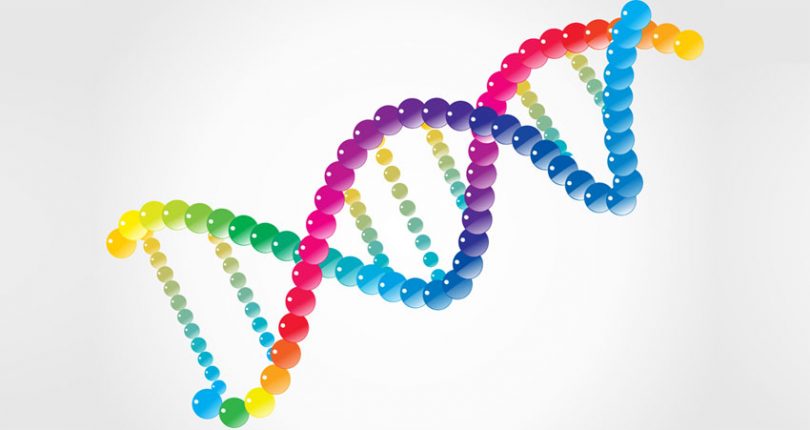A couple of week’s ago DNA testing company 23andme announced a data sharing deal with Glaxo SmithKline which also invested $300m. Social media and parts of mainstream media gave the deal a thumbs down. 23andme and its CEO Anne Wojcicki seem sincere in wanting users to have control over their genetic data. So if they get such an adverse reaction, how and why can blockchain companies do better?
This is not 23andme’s first big pharma deal. But the recent Facebook Cambridge Analytica scandal is making the public ever more wary about data control.
People may want to help with research, but perhaps a blanket ‘yes to research’ – which is the current state – is too much to ask from customers. Firstly, consumers might want a choice about who gets the information and for what purpose they use it. Secondly, many customers might think they already paid for the DNA test, why should 23andme profit from selling rights to their data. Finally, they may want to have some choice about what data is shared and how.
Why genetic testing and research is a good thing
Five years ago actress Angelina Jolie announced she had a double mastectomy. Doctors told her she had a faulty gene known as BRCA1. According to breastcancer.org “For women who have a BRCA1 or BRCA2 abnormality, the risk of developing breast cancer in your lifetime is between about 40% and 85% — about 3 to 7 times greater than that of a woman who does not have the mutation.”
Jolie would have realized she had some risk since her mother died at age 56 after a decade-long cancer battle. However, the gene mutation only accounts for a small proportion of people with breast cancer. But the combination of genetic tests, family history, and medical advice, provided a clearer picture.
Earlier this year 23andme gained FDA approval for testing three out of a thousand BRCA1 and BRCA2 variations. 23andme’s other genetic tests already had FDA approval, so the difference seemed subtle to non-experts.
Regarding other tests, the FDA stated ‘The GHR [Genetic Health Risk] tests are intended to provide genetic risk information to consumers, but the tests cannot determine a person’s overall risk of developing a disease or condition.” The latest approved BRCA test goes a step further and provides a risk of developing the disease.
Without genetic research, Jolie would not have understood the degree of risk. Many can benefit from more research with improved diagnosis, illness prevention, and personalized treatments.
Genetic research needs huge data sets. 23andme has run more than five million genetic tests, and not everyone consents to research. Given the negative response, there’s a risk that the Glaxo deal could discourage opt-ins. If the test numbers continue to grow, there needs to be a better way to encourage people to consent.
Making the risk worthwhile
Blockchain has the potential to give consumers more control over their data.
Most people don’t get a genetic test purely to contribute to research. They take a DNA test to see if they are at risk of a disease or to find out about their ancestry.
So why not harness similar motivations for research? If your family has a history of diabetes or your genes indicate you’re at risk, you’re far more likely to participate in diabetes-related research.
In fairness to 23andme, they explicitly ask customers if they wish to opt-in to share data for research. They state they anonymize the information before sharing, though that’s not full-proof protection.
One suspects that some users tick the box without appreciating the full implications, and others might assume that 23andme does all the research themselves.
The press has focused on 23andme getting a significant financial reward. With blockchain that fee can go to the data owner. The individual compensation could be meaningful in lower-income countries, but less so in the developed world.
A blanket research opt-in appeals to altruistic motivations of medical research. However, there’s a significant perceived risk of the data being misused. So when the reward is altruistic, and the risk is personal, for some that’s not the right balance.
Potentially the biggest personal reward is to participate in research that can have an impact on your health or that of your family. To achieve that, companies should consider an opt-in on a per test basis. You know your family’s history, and after testing, you’re aware of your genetic risk information.
23andme’s deal with Glaxo SmithKline is exclusive, and Parkinson’s was mentioned as an initial focus. What if your family has no history of Parkinson’s, but another drug company is more advanced in say Alzheimers?
Blockchain solutions
Apart from deals with pharma companies, 23andme provides an API which enables individuals to expressly consent to share data with a particular app or research program. But 23andme stores the data centrally. With many of the blockchain solutions, the user stores the data.
Storing your own data comes with other risks, like that of loss or being hacked. But it makes it harder for hackers to get their hands on millions of records like the Equifax data breach.
However, if you provide your data for a particular test, the testing company could keep it. In a recent Wired article, Bradley Malin, director of the Health Data Science Center at Vanderbilt University commented: “So you’re going to have to ask the question of, how do you know they’re not copying it and moving it elsewhere? The blockchain doesn’t stop that.”
Except it stops one thing. 23andme have your personal information in addition to the anonymized genetic information and the ‘phenotype’ survey information. All three in combination make you identifiable. If you share only your anonymized data that will help.
But blockchain companies are going to need to make sure the data really is anonymous. The pseudo-anonymous nature of Bitcoin has proven easy to link with identifying information and exposed criminals to the authorities.
The Australian Health Authority recently did a novel blockchain test where they allowed centralized data to be used for experiments but not downloaded.
There’s a surprising number of companies working in the blockchain DNA area: Nebula Genomics, LunaDNA, EncrypGen, Zenome, DNAtix, Shivom, X genomics, and Blockgene. And there are more. They are all early stage. For now, Nebula Genomics has the highest profile.
Conclusion
The blockchain startups may offer improvements, but so far none appears to solve the privacy issue entirely. One possibility is to store aggregated anonymous data sets in a similar way to the Australian Health Authority, but only temporarily. That way researchers can run tests but cannot download the data. This could potentially be automated. However, any queries will always ‘leak’ some information.
Given the potential benefit for so many, it’s worth spending the effort to solve the privacy issue.
If you’re interested in learning more about Blockchain and Pharma Supply Chain, Hanson Wade is running a conference in Boston in October. The link includes a 10% ticket discount. We’ve found Hanson Wade events have strong speakers, hardly any sponsor promotional content, and provide excellent networking opportunities.
Ledger Insights is an event Content and Media Partner but this is neither a paid message nor do we earn commission.






